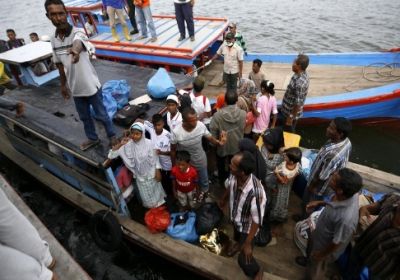
-
 Ecuadorean President Rafael Correa announced on May 16 that the Community of Latin American and Caribbean States (CELAC) will provide assistance to the thousands of Asian immigrants stranded off the coast of Thailand. “This world is crazy, it shows a total disregard for human life to have people stranded on a boat, dying of starvation without being allowed to get off the boat,” Correa stated during his weekly presidential address.
Ecuadorean President Rafael Correa announced on May 16 that the Community of Latin American and Caribbean States (CELAC) will provide assistance to the thousands of Asian immigrants stranded off the coast of Thailand. “This world is crazy, it shows a total disregard for human life to have people stranded on a boat, dying of starvation without being allowed to get off the boat,” Correa stated during his weekly presidential address. -
 Chile has been hit by another round of protests by student groups demanding substantial reforms to the country’s education system.
Two student activists were killed in Chile on May 14 amid nationwide protests. The two students were shot in the city of Valparaiso, near the Plaza Victoria, at the end of a huge rally. Local media said both students were gunned down by a Valparaiso store owner as they attempted to hang a banner over his shop.
Chile has been hit by another round of protests by student groups demanding substantial reforms to the country’s education system.
Two student activists were killed in Chile on May 14 amid nationwide protests. The two students were shot in the city of Valparaiso, near the Plaza Victoria, at the end of a huge rally. Local media said both students were gunned down by a Valparaiso store owner as they attempted to hang a banner over his shop.
-
Mexican gov't blocks investigation over missing students
 Demonstrators demanding justice in the case of the 43 disappeared Ayotzinapa students. Photo: Clayton Conn/TeleSUR.
The lawyer representing the parents and relatives of 43 missing Ayotzinapa students criticised the Mexican government on May 14 for stopping a meeting between experts from the Inter-American Court of Human Rights and army officials.
Demonstrators demanding justice in the case of the 43 disappeared Ayotzinapa students. Photo: Clayton Conn/TeleSUR.
The lawyer representing the parents and relatives of 43 missing Ayotzinapa students criticised the Mexican government on May 14 for stopping a meeting between experts from the Inter-American Court of Human Rights and army officials.
-
 President Nicolas Maduro at International Workers' Day celebrations in Caracas, May 1.
Braving the heat, more than 100,000 Venezuelans flooded the streets of Caracas on May 1 to commemorate the International Workers' Day and gains for working people under the Bolivarian Revolution.
President Nicolas Maduro at International Workers' Day celebrations in Caracas, May 1.
Braving the heat, more than 100,000 Venezuelans flooded the streets of Caracas on May 1 to commemorate the International Workers' Day and gains for working people under the Bolivarian Revolution.
-
 Photo: CISPES.org.
Hundreds of thousands of people filled the streets of San Salvador on May 1 to celebrate May Day and the victories of the working class. Marchers raised demands for justice, equality and self-determination, CISPES.org said on May 4.
Photo: CISPES.org.
Hundreds of thousands of people filled the streets of San Salvador on May 1 to celebrate May Day and the victories of the working class. Marchers raised demands for justice, equality and self-determination, CISPES.org said on May 4.
-
 President Rafael Correa led some 55,000 workers into Santo Domingo plaza. Photo: TeleSUR.
May Day celebrations in Quito took on a divided political nature with two marches happening simultaneously, TeleSUR English said on May 1.
President Rafael Correa led some 55,000 workers into Santo Domingo plaza. Photo: TeleSUR.
May Day celebrations in Quito took on a divided political nature with two marches happening simultaneously, TeleSUR English said on May 1.
-
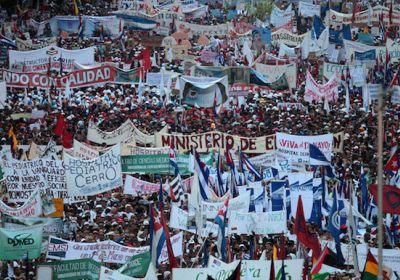
An estimated 1 million people marched on May 1 in Havana, Cuba, to celebrate International Workers´ Day, TeleSUR English said.
-
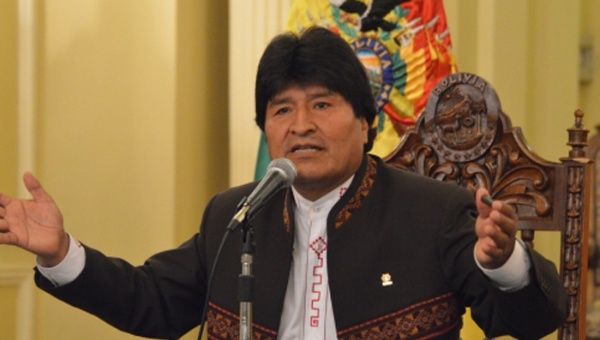 Evo Morales. Photo: ABI — Agencia Boliviana de Información.
Bolivia's left-wing president Evo Morales announced various salary rises on May 1 in honour of International Workers’ Day, TeleSUR English said. The national minimum wage will increase by 15% from US$208 to $239 a month and the general salary by 8.5%.
Evo Morales. Photo: ABI — Agencia Boliviana de Información.
Bolivia's left-wing president Evo Morales announced various salary rises on May 1 in honour of International Workers’ Day, TeleSUR English said. The national minimum wage will increase by 15% from US$208 to $239 a month and the general salary by 8.5%.
-
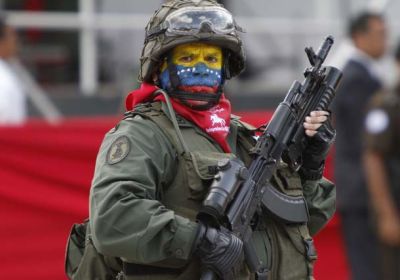
A new report by the Stockholm International Peace Research Institute found Venezuela cut its military budget by 34% last year, leading the region in arms spending cuts. In contrast, United States political allies Paraguay and Mexico led the region in upping military spending, raising military budgets by 13% and 11%, respectively.
-
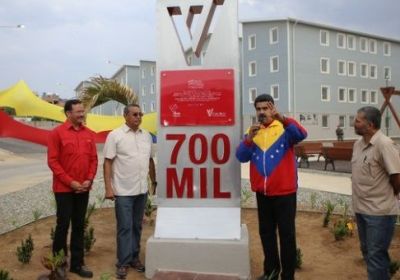
Venezuelan President Nicolas Maduro inaugurated the 700,000th house built under a state-led initiative to provide housing to the most needy Venezuelans on April 17.
-
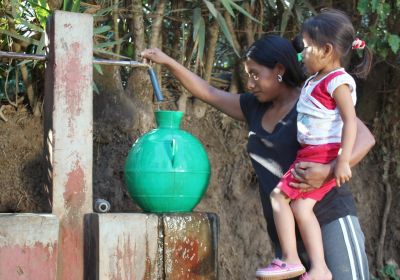
During the final session of El Salvador's outgoing parliament on April 29, right-wing parties blocked a vote to ratify a constitutional reform that would have enshrined water and food as human rights. In doing so, the bloc of Nationalist Republican Alliance (ARENA), National Conciliation (PCN), and Christian Democrat (PDC) parties demonstrated their support for elite business interests over the health and wellbeing of the Salvadoran people.
-
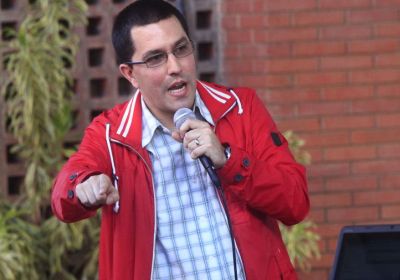
The Third World countries of Asia, Africa and Latin America should form an alliance in order to “end imperialist domination,” Venezuelan vice-president Jorge Arreaza has said. Arreaza proposed a Third World alliance during a speech at the Asia-Africa Summit in Indonesia on April 25. Speaking as a special Latin American representative, Arreaza told the audience the alliance was needed to overthrow imperialism and end the unipolar system imposed on Southern nations.